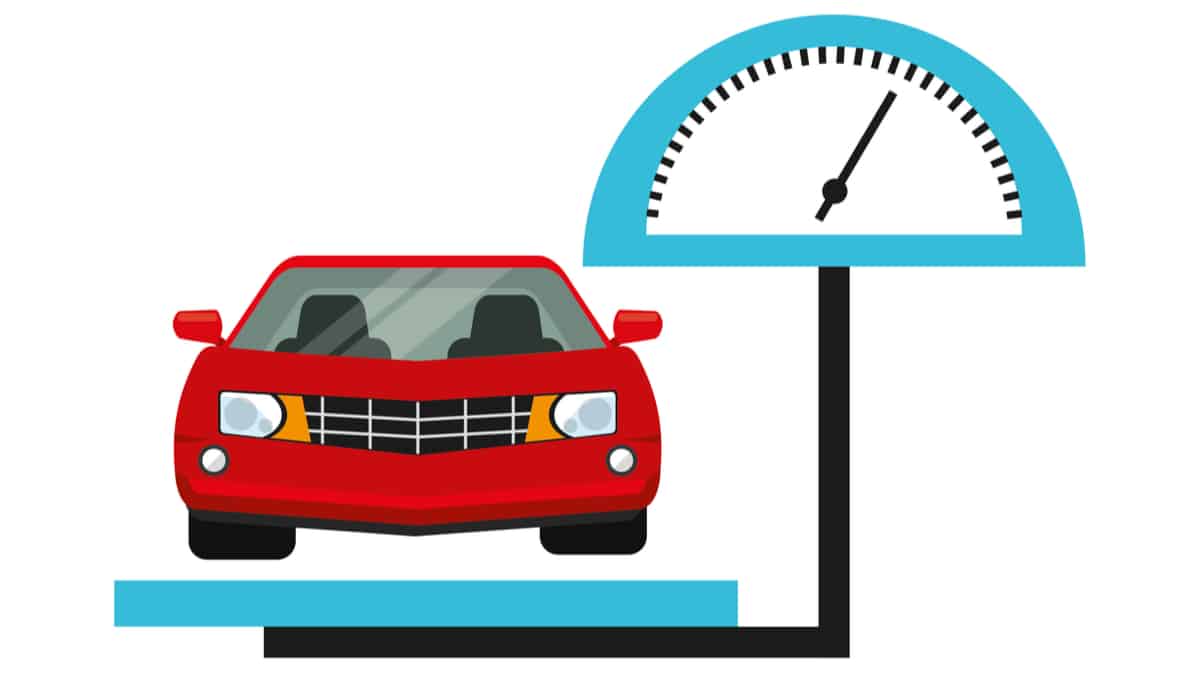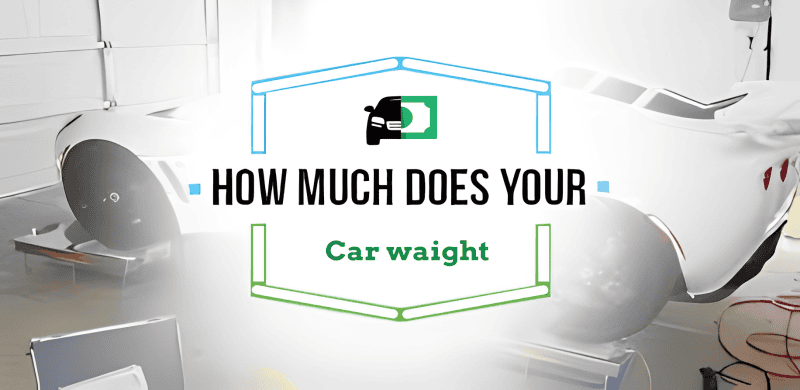Table of Contents
How much does your car weigh? It may seem like a trivial question, but knowing the weight of your vehicle can actually have significant implications on various aspects of your driving experience. Whether you are a car enthusiast or simply a regular driver, understanding the weight of your vehicle is extremely important.
Many car owners overlook the importance of knowing their car’s weight. However, it is a critical piece of information that can affect your vehicle’s performance, handling, fuel efficiency, and even your safety on the road. Ignorance of your car’s weight can lead to potential issues, such as overloading, improper tire pressure, and an imbalance in the vehicle’s weight distribution.
Knowing how much your car weighs allows you to make informed decisions when it comes to maintenance, upgrades, and overall driving experience. In this article, we will explore why understanding your car’s weight is vital and how it can help you enhance your driving efficiency and safety. So, let’s dive into the importance of knowing how much your car weighs.
Types of Car Weight
When discussing car weight, it’s essential to understand that there are several classifications and measurements that contribute to the overall weight of your vehicle. Here’s a breakdown of the key types of car weight:
Curb Weight
Curb weight refers to the weight of your car as it sits in its factory condition. This includes all standard equipment, fluids, and a full tank of gas. It does not account for any additional passengers or cargo.
Gross Vehicle Weight Rating (GVWR)
GVWR is the maximum weight your vehicle is rated to safely carry, including its own weight. Exceeding this limit can result in reduced safety and vehicle damage.
Gross Axle Weight Rating (GAWR)
GAWR specifies the maximum weight that each axle (front and rear) of your car can bear. Overloading either axle can lead to handling and safety issues.
Payload Capacity
Payload capacity indicates how much weight your car can carry in terms of passengers and cargo. Exceeding this capacity can impact your car’s performance and fuel efficiency.
Curb Weight vs. Gross Vehicle Weight: What’s the Difference?
It’s crucial to differentiate between curb weight and GVWR. Curb weight is the actual weight of the vehicle, while GVWR is the maximum safe weight as determined by the manufacturer. Knowing the difference can help you avoid overloading your vehicle.
How Much Does A Car Weigh?
The Environmental Protection Agency (EPA) states that the average weight of a car is approximately 4,100 pounds. However, it’s important to note that these figures are averages, and the weight of a specific vehicle can vary based on its make, model, and the options or equipment included. Small cars tend to weigh around 2,500 pounds, while larger cars can weigh about 4,200 pounds. Trucks and SUVs, on the other hand, can range from approximately 3,500 pounds to over 6,000 pounds.
Electric vehicles, compared to their gasoline-powered counterparts of similar size, often weigh more due to the added weight of their battery packs. Vehicle weight plays a significant role in factors like fuel economy, and it varies significantly depending on the vehicle class.
For the 2023 model year, one of the heaviest passenger vehicles available is the Hummer EV Pickup, weighing a remarkable 9,063 pounds. It’s worth noting that this weight is exceptional and doesn’t include some of the heavy-duty trucks. On the other end of the spectrum, the lightest vehicle currently available for sale in the US is the Mitsubishi Mirage, with a curb weight of just 2,095 pounds.
Vehicle weight encompasses more than just curb weight, and this article will delve into the fundamental aspects and considerations related to vehicle weights.

Lightweight Cars
Compact and subcompact cars typically weigh between 2,000 to 3,000 pounds (907 to 1,361 kilograms). Their lighter weight contributes to better fuel efficiency and ease of maneuverability.
Mid-Size Cars
Mid-size cars range from 3,000 to 4,000 pounds (1,361 to 1,814 kilograms). These cars offer a balance between size and weight, making them a popular choice for many drivers.
Heavyweight Vehicles
SUVs, trucks, and large luxury cars can weigh between 4,000 to 6,000 pounds (1,814 to 2,722 kilograms) or even more. Their substantial weight provides durability and enhanced safety features.
Why It’s Important to Know Your Car’s Weight
Understanding your car’s weight is essential for several reasons:
- Safety
Understanding the weight of your vehicle is a crucial aspect of ensuring automotive safety. This is because in the event of auto accidents, smaller compact cars face a significant disadvantage when compared to larger cars or trucks. For every 1,000-pound difference in weight, there is an associated increase in the fatality rate of over 40%. Additionally, it’s important to consider that certain bridges have specific weight limits in place. Knowing the weight of your car provides peace of mind when crossing a bridge with weight restrictions, as you can ensure that your vehicle falls within the permitted weight range.
- Fuel Efficiency
According to the EPA, reducing a car’s weight by 100 pounds leads to a 1-2% improvement in its fuel economy. This translates to potential savings on both fuel consumption and costs with a lighter car. As a helpful tip, in addition to your vehicle’s weight, it’s advisable to regularly inspect your car for any unnecessary items or clutter that could add unnecessary weight and remove them to enhance fuel efficiency.
- Towing Capacity
Your car’s weight affects its ability to tow trailers or other vehicles safely. Exceeding your car’s towing capacity can lead to damage.
- Maintenance
When conducting routine checks on your car, it’s essential to use the right tools for the job. Understanding your car’s weight will provide valuable information for selecting tools that can effectively handle its weight and specific maintenance needs.
- Resale Value
When selling your car, buyers often inquire about its weight. Accurate information can boost your car’s resale value.
- Legal Compliance
Knowing your car’s weight ensures you comply with local and state regulations regarding vehicle weight limits.
Prices of Car Scrap Metal (Weight) and Your Car’s Junk Value
When it comes to the end of your car’s life cycle, its weight plays a significant role in determining its scrap metal value and overall junk value.
Car scrap metal prices are influenced by factors such as the type of metal used in your vehicle’s construction, market demand, and weight. Heavier cars typically yield more valuable scrap metal.
Consider selling your car by its individual parts. Even if scrap metal prices are on the decline, you can still fetch good prices for valuable components. Some of these valuable parts include the catalytic converter and the head gasket.


